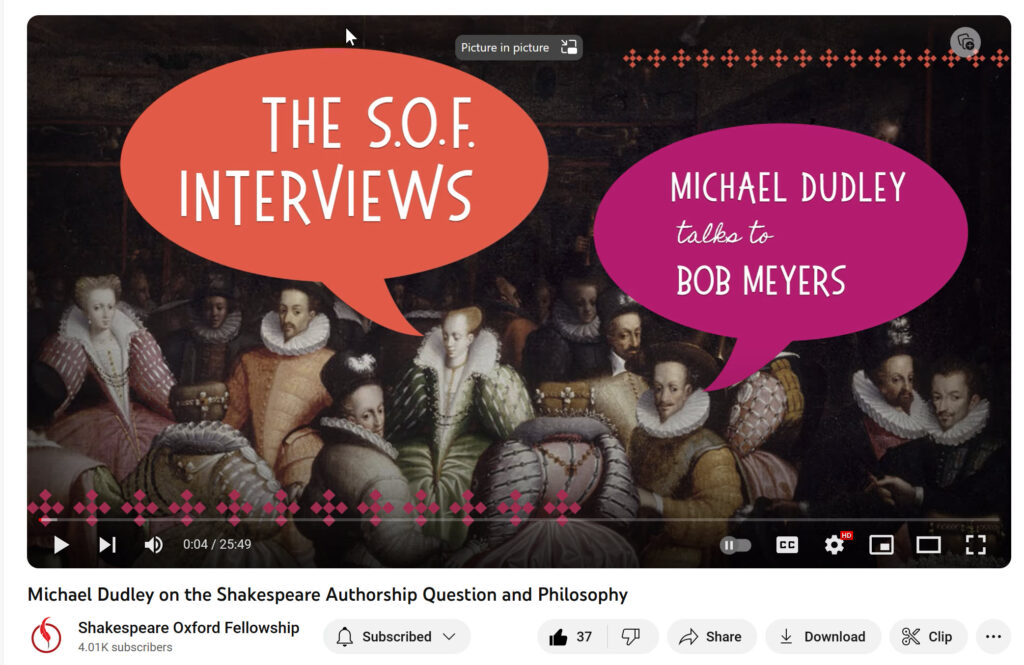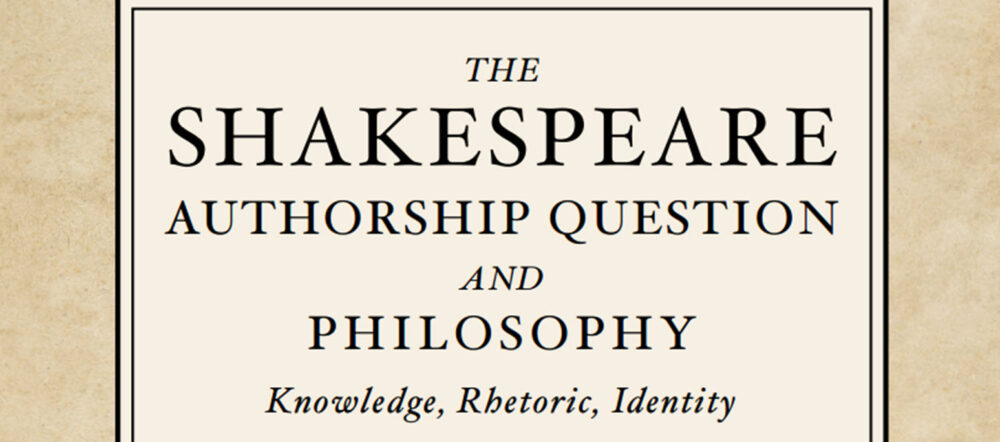I recently sat down (over Zoom) with Bob Meyers of the Shakespeare Oxford Fellowship to discuss my new book; the interview is now available on YouTube!


I recently sat down (over Zoom) with Bob Meyers of the Shakespeare Oxford Fellowship to discuss my new book; the interview is now available on YouTube!

I’ll be presenting several of the chapters from the book (by pre-recorded video) to the Shakespeare Oxford Fellowship’s Fall Conference in New Orleans, on November 12th. My talk, “By the Rule of That Philosophy: Validating the Oxfordian Thesis Using Theories of Knowledge, Justification and Truth,” focuses primarily on chapters four and five. I only wish I could attend in person, it looks like it’s going to be a fascinating conference — I’m especially interested in Sky Gilbert’s talk, “Shakespeare’s Epistemology and the Problem of Truth” which immediately follows mine.
Most scholars say that Shakespeare’s identity is “beyond doubt.” Yet, mystery has always surrounded the works known as Shakespeare’s. More importantly though, what does it mean for the study of knowledge–and history–to declare that something is “beyond doubt” especially when there are so many doubters? What are the downstream effects for academic freedom and pedagogy?
My new book The Shakespeare Authorship Question and Philosophy seeks to look past the claims and counterclaims about this or that candidate to instead examine this debate in terms of external criteria, in the form of theories of knowledge, truth, and rhetoric. The results will, I hope, shed new light on one of the most enduring of academic taboos.
Find out more at my book launch on November 30th, 2023!